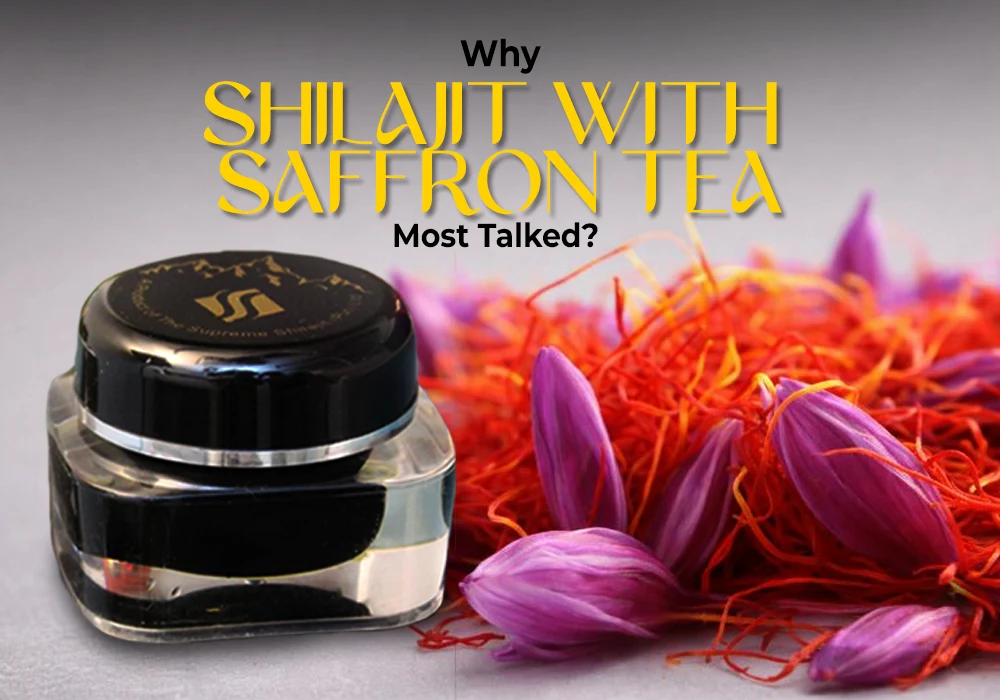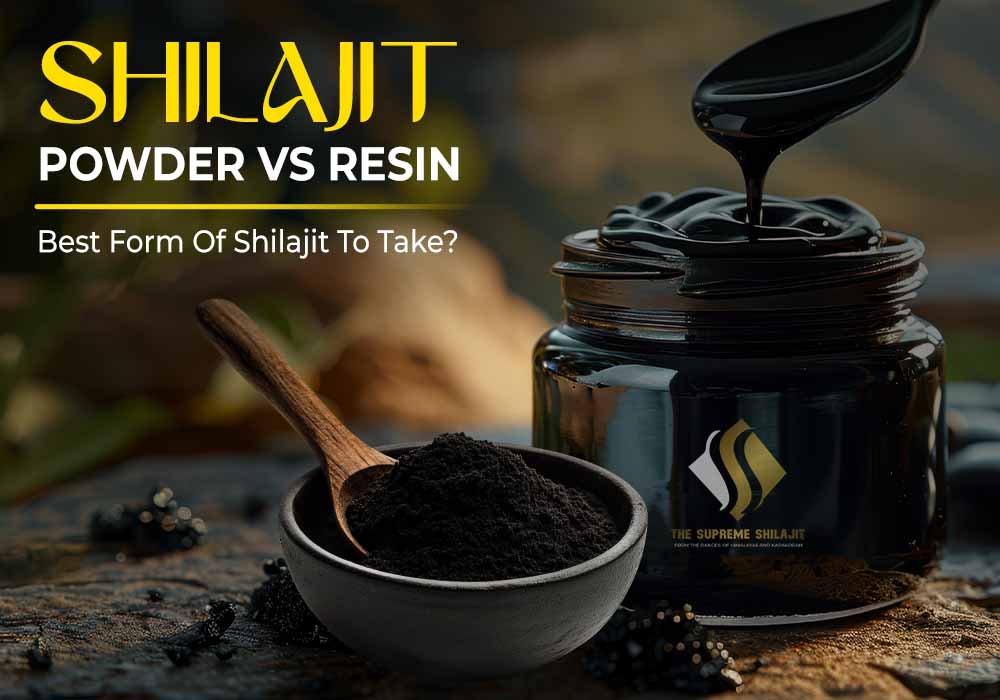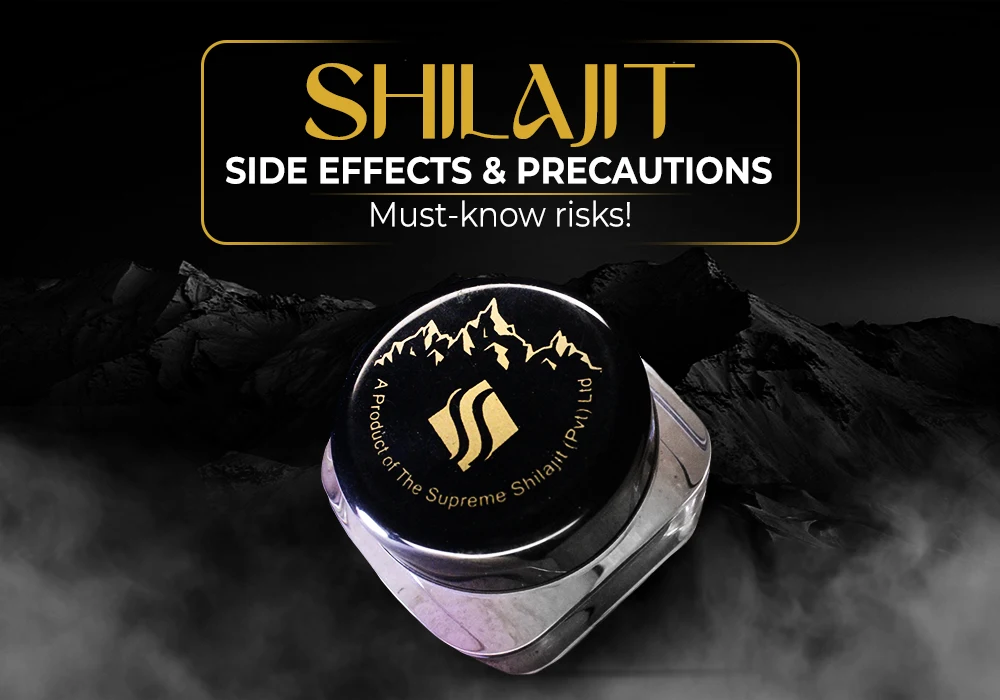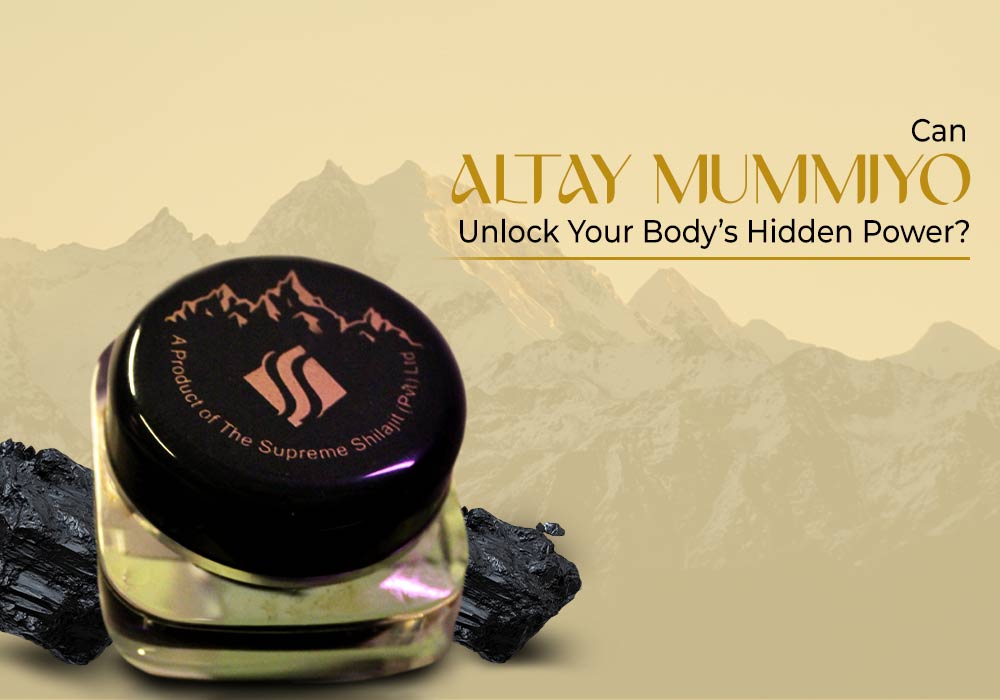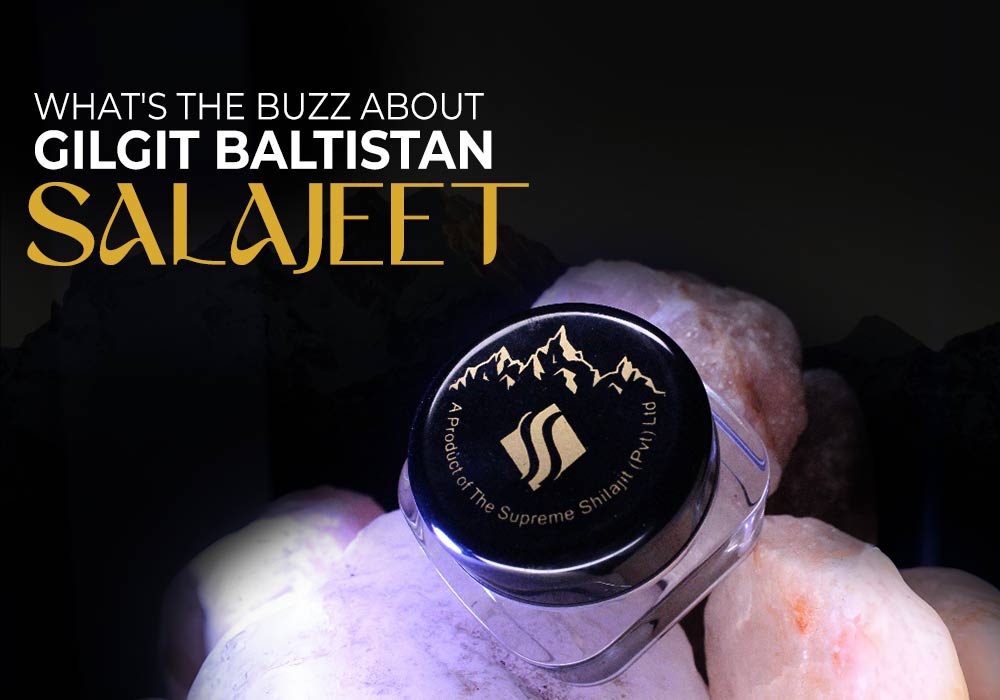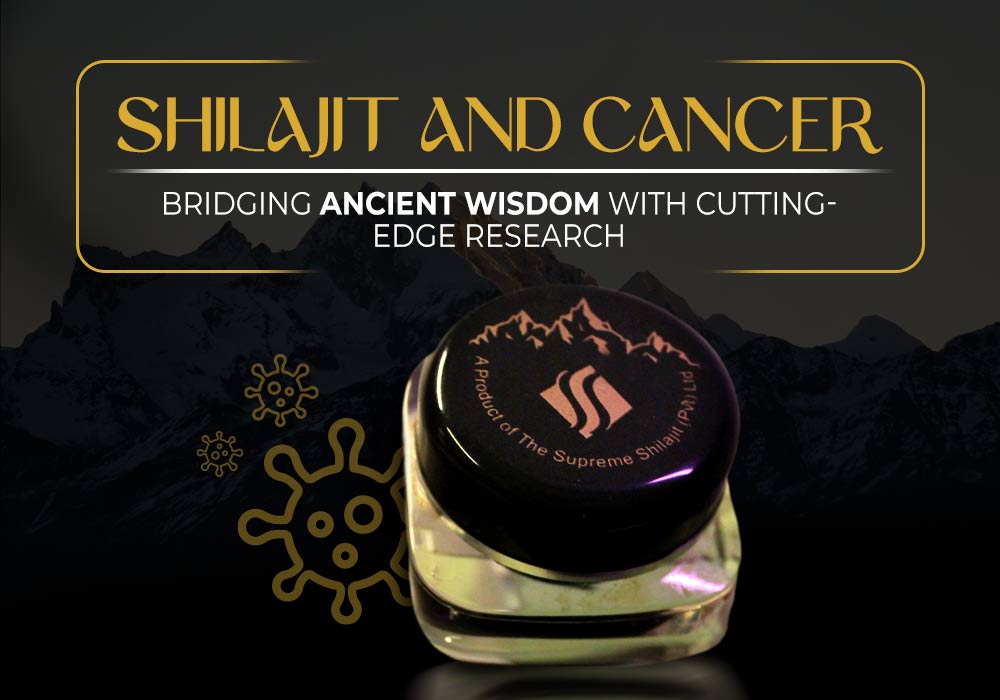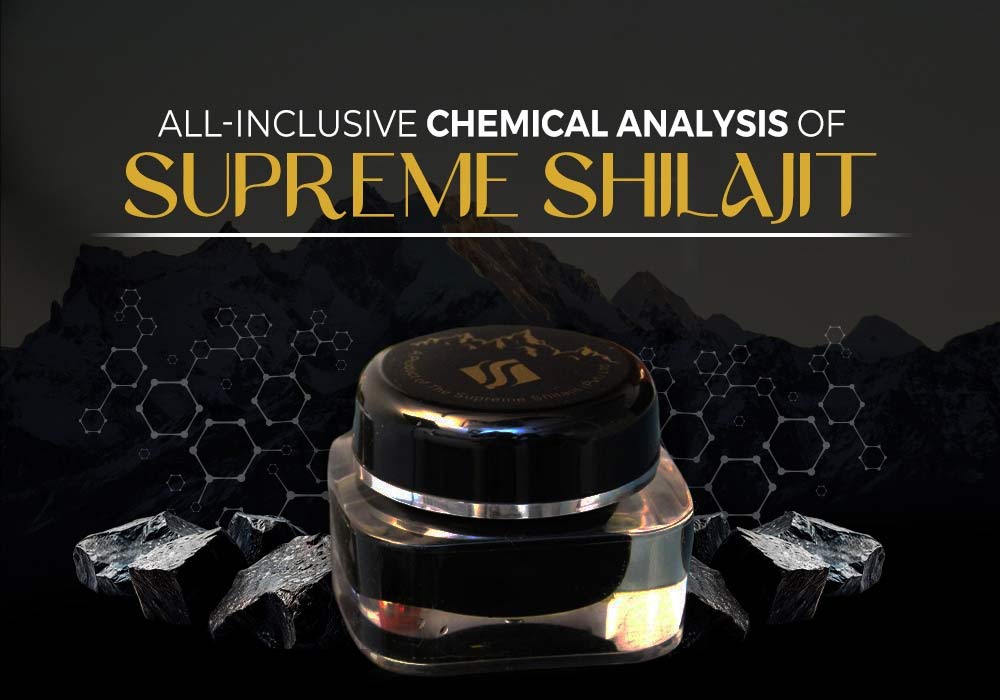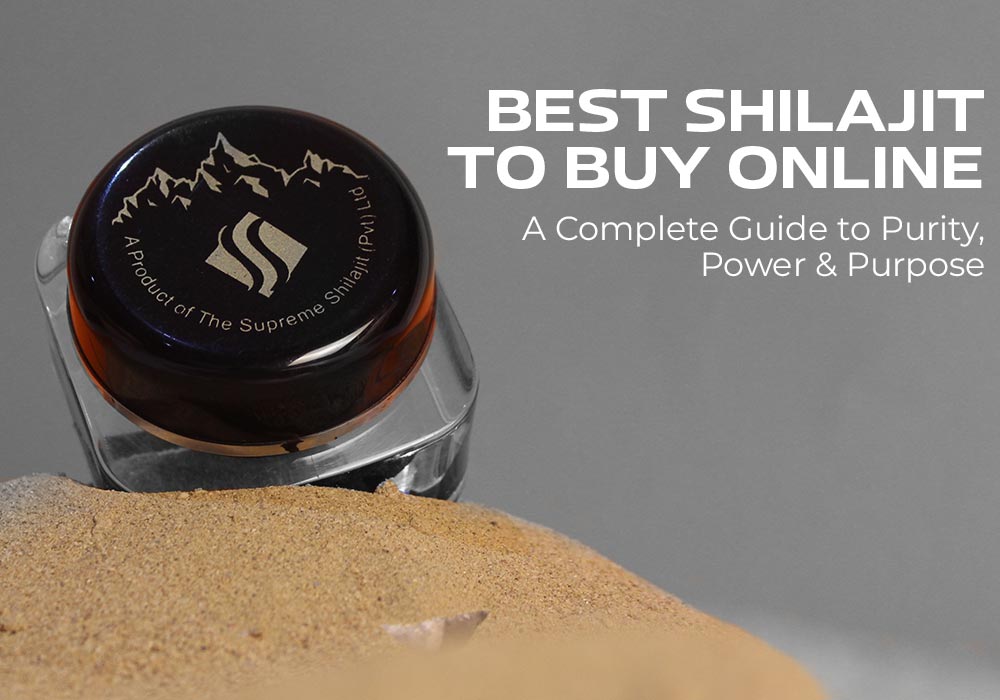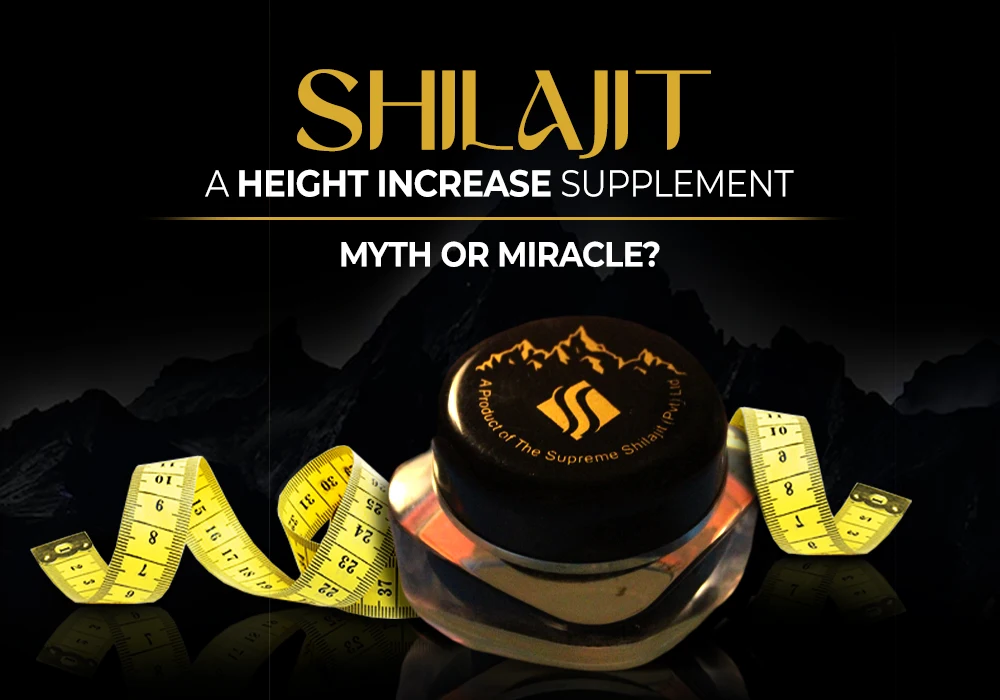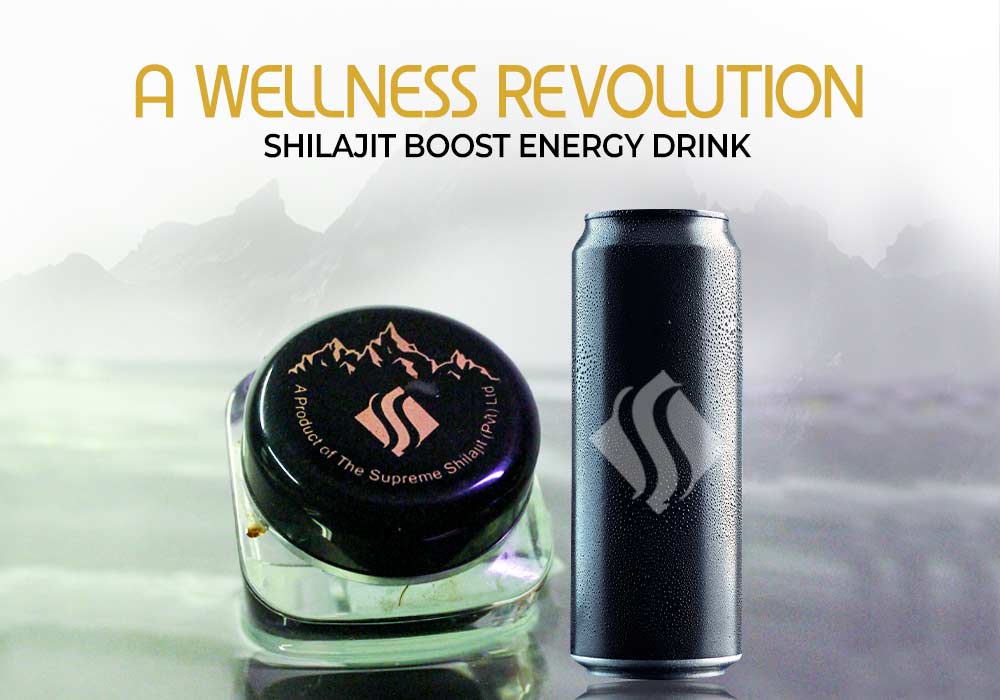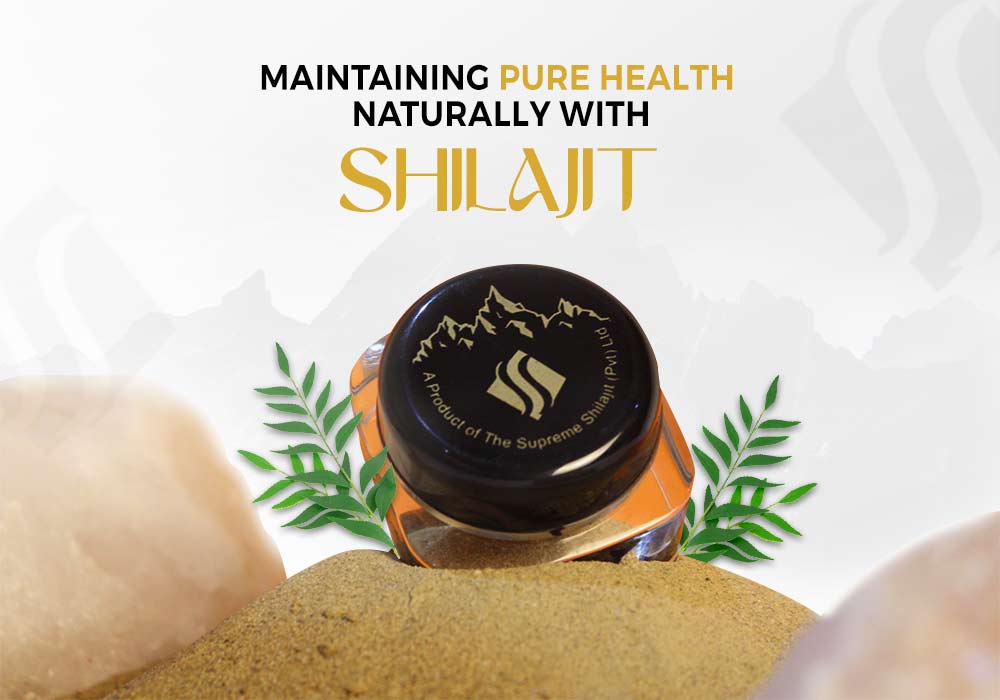Blog
Why Settle for Less When You Can Have Lab-Tested Shilajit?
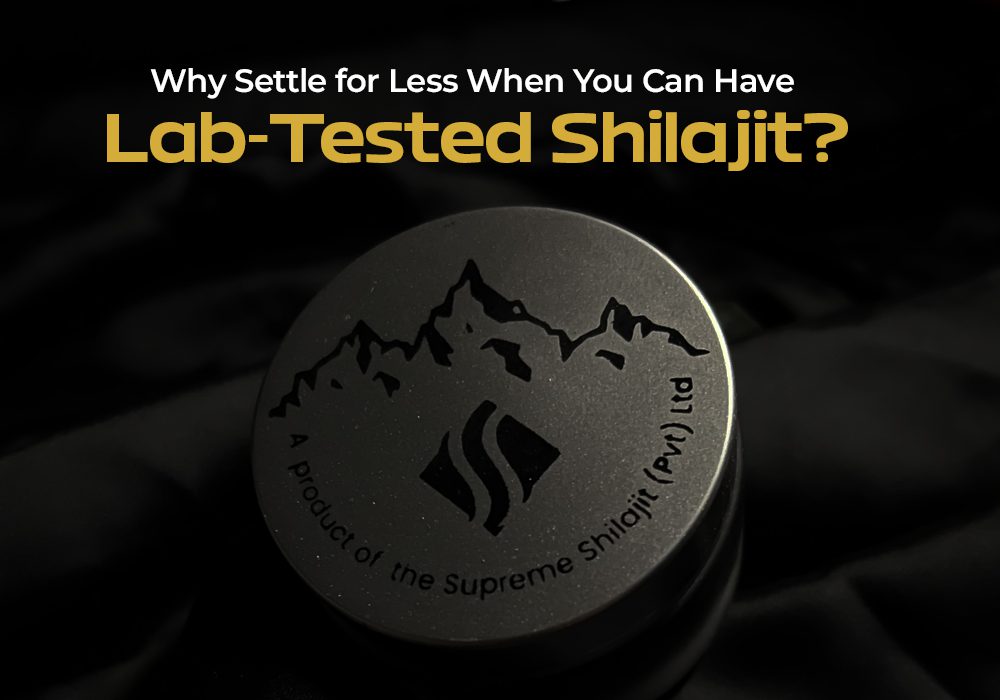
Hey there! If you’re in Pakistan and looking to buy Shilajit in Pakistan, you’ve probably heard the buzz about this sticky, tar-like substance from the Himalayas. Known as the “destroyer of weakness” in Ayurveda, Shilajit—scientifically called Asphaltum punjabianum—is a powerhouse of minerals, antioxidants, and fulvic acid. But here’s the catch: not all Shilajit is created equal. Using lab tested Salajeet, like Blisque Shilajit, can make all the difference, while local, unverified stuff might do more harm than good.
In this blog, I’ll walk you through everything you need to know about Shilajit, from its benefits to the risks of uncertified products, and answer those burning questions like, “Can you be allergic to Shilajit?” or “Is Shilajit high in histamine?” Let’s dive in!
Table of Contents
What Is Shilajit, Anyway?
Imagine high up in the Himalayas, where rocks bake under the summer sun, a gooey, blackish-brown substance oozes out. That’s Shilajit, also known as Altay mummiyo salajeet in some regions. It’s not just some random tar—it’s a natural phytocomplex formed over centuries from the slow decomposition of plants, packed with over 80 minerals, fulvic acid, and humic acid. In Ayurveda, it’s been revered for thousands of years as a “rasayana” (rejuvenator) that boosts energy, fights aging, and tackles everything from fatigue to cognitive decline.
But here’s the deal: Shilajit’s magic lies in its purity. Certified, lab-tested Shilajit like Blisque Shilajit ensures you’re getting the real stuff—free from contaminants like heavy metals or toxins that can sneak into unverified sources. Local, unregulated Shilajit, often sold in markets, might look legit but could be adulterated or improperly processed, which is a gamble you don’t want to take.
Why Should You Care About Lab-Tested Shilajit?
You wouldn’t buy a car without checking if it runs, right? Same goes for Shilajit. Lab-tested Shilajit goes through rigorous checks to ensure it’s free from harmful substances like lead, arsenic, or mycotoxins. Uncertified Shilajit, especially the kind you might find in local bazaars, can be a health hazard. Here’s why you should stick to the certified stuff:
- Purity Matters: Lab testing confirms the absence of heavy metals and impurities, which can cause liver toxicity or digestive issues if consumed long-term.
- Potency Guaranteed: Certified Shilajit, like Blisque Shilajit, is standardized for fulvic acid content, ensuring you get the maximum benefits.
- Safety First: Unprocessed or fake Shilajit might contain harmful bacteria or chemicals from improper handling, leading to side effects like nausea or allergic reactions.
A 2019 study warned that unregulated Shilajit can contain high levels of heavy metals, which could lead to serious health risks over time. Choosing lab-tested options ensures you’re not rolling the dice with your health.
What Are the Benefits of Certified Shilajit?
Shilajit isn’t called the “conqueror of mountains” for nothing. When you use lab-tested Shilajit, you’re tapping into a treasure trove of benefits backed by both Ayurveda and modern research. Here’s what it can do for you:
- Boosts Energy and Fights Fatigue: Shilajit enhances mitochondrial function, helping your cells produce more ATP (the body’s energy currency). A 2012 study showed it reduced chronic fatigue syndrome symptoms in rats by improving energy production.
- Supports Brain Health: Fulvic acid in Shilajit may block tau protein buildup, a key factor in Alzheimer’s disease, according to a 2023 study. It’s like a natural brain detox!
- Increases Testosterone and Fertility: A 2010 clinical trial found that men taking 500 mg of purified Shilajit daily for 90 days saw a significant boost in testosterone and sperm count.
- Strengthens Bones: A 2022 study showed Shilajit improved bone density in postmenopausal women, reducing the risk of osteoporosis.
- Fights Inflammation and Aging: Its antioxidant properties, thanks to fulvic acid, combat free radicals, potentially slowing aging and reducing inflammation-related conditions like arthritis.
- Aids High-Altitude Performance: Shilajit’s ability to improve oxygen delivery makes it a go-to for climbers and travelers dealing with altitude sickness.
- Supports Heart Health: Animal studies suggest Shilajit can lower bad cholesterol and protect heart tissue from damage.
- Enhances Immunity: It activates macrophages and splenocytes, giving your immune system a natural boost.
These benefits are most pronounced with lab-tested Shilajit, as impure versions may not deliver the same results—or worse, cause harm.
What Is Histamine, and Is Shilajit High in It?
Let’s break it down: Histamine is a chemical your body releases during immune responses, like when you’re exposed to allergens. It’s what causes those itchy eyes or runny nose during allergy season. Too much histamine can lead to inflammation or discomfort, especially for folks with histamine intolerance.
Is Shilajit high in histamine? Good news: there’s no solid evidence that lab-tested Shilajit contains significant histamine levels. In fact, Shilajit’s fulvic acid has anti-allergic properties, potentially stabilizing mast cells and reducing histamine release, according to a 2018 review. This makes it a promising option for managing allergies rather than triggering them. However, unprocessed Shilajit might contain contaminants that could indirectly cause histamine-related reactions, another reason to stick with certified brands like Blisque Shilajit.
Can You Be Allergic to Shilajit?
Yes, it’s possible, but it’s rare with lab-tested Shilajit. Allergic reactions are more likely with impure or unprocessed Shilajit, which might contain plant debris, heavy metals, or other allergens. Here’s what you need to know:
- Certified Shilajit Is Safer: Lab-tested products undergo purification to remove potential allergens, reducing the risk of reactions.
- Unprocessed Risks: Local, unregulated Shilajit might harbor impurities like mold or bacteria, which can trigger allergies in sensitive individuals.
- Research Insight: A 2018 study noted that Shilajit’s anti-allergic properties could actually help with conditions like asthma or eczema, but only when it’s pure.
If you have a history of allergies, start with a small dose of lab-tested Shilajit and monitor your body’s response.
What Are the Possible Signs of a Shilajit Allergy?
Allergic reactions to Shilajit are uncommon, but they can happen, especially with low-quality products. Here are some signs to watch for:
- Skin Reactions: Itching, rashes, or hives.
- Respiratory Issues: Sneezing, runny nose, or difficulty breathing.
- Digestive Distress: Nausea, stomach cramps, or diarrhea.
- Swelling: Mild swelling in the face, lips, or throat (seek medical help immediately if severe).
- General Discomfort: Fatigue or dizziness that feels unusual.
If you notice any of these after taking Shilajit, stop use and consult a doctor. Always choose lab-tested Shilajit to minimize these risks.
Who Should Be Extra Cautious with Shilajit?
Shilajit is powerful, but it’s not for everyone. Here’s who should tread carefully:
- Pregnant or Breastfeeding Women: There’s not enough research to confirm Shilajit’s safety during pregnancy or breastfeeding. Better safe than sorry—avoid it.
- People with Diabetes: Shilajit can lower blood sugar, which might interfere with diabetes medications. Monitor levels closely and consult your doctor.
- Those on Blood Pressure Meds: Shilajit may lower blood pressure, potentially causing issues if you’re already on medication.
- Allergy-Prone Individuals: If you have a history of allergies, especially to plant-based substances, start with a tiny dose of lab-tested Shilajit.
- People with Hormone-Sensitive Conditions: Shilajit boosts testosterone, so those with conditions like prostate cancer should consult a doctor first.
- Surgery Patients: Stop taking Shilajit at least two weeks before surgery, as it might affect blood sugar or pressure control.
Always talk to a healthcare provider before adding Shilajit to your routine, especially if you’re on medications or have health conditions.
How to Spot Fake or Local Shilajit?
The market is flooded with fake or low-quality Shilajit, especially in Pakistan, where unregulated vendors might sell adulterated products. Here’s how to avoid the traps:
- Check Certification: Look for third-party lab testing or certifications on the packaging. Brands like Blisque Shilajit clearly state their testing standards.
- Solubility Test: Real Shilajit dissolves completely in warm water or milk, leaving no residue. If it’s gritty or doesn’t dissolve, it’s likely fake.
- Color and Texture: Authentic Shilajit is blackish-brown, sticky, and tar-like. If it’s too powdery or has an odd smell, steer clear.
- Avoid Cheap Deals: Quality Shilajit, like Altay mummiyo salajeet, is rare and expensive to process. If the price seems too good to be true, it probably is.
- Source Matters: Himalayan or Altai-sourced Shilajit is more likely to be authentic. Be wary of vague “mountain-sourced” claims.
Uncertified Shilajit can contain heavy metals, mold, or fillers, leading to side effects like liver toxicity, digestive issues, or allergic reactions. Stick to trusted brands to stay safe.
How to Use Lab-Tested Shilajit Safely?
Ready to give Shilajit a try? Here’s how to incorporate lab-tested Shilajit into your routine:
- Start Small: Begin with a pea-sized amount (about 300–500 mg) once daily to see how your body reacts.
- Mix It Up: Dissolve Shilajit in warm water, milk, or tea. For a tasty twist, try this recipe:
- Boil 1.5 cups of water with ½ tsp of your favorite tea.
- Strain, add 2 pinches of Shilajit powder, and stir.
- Drink every morning for a natural energy boost.
- Timing Matters: Take it after meals to avoid stomach upset. Twice daily (morning and evening) is common for ongoing use.
- Choose the Right Form: Shilajit comes as resin, powder, capsules, or tablets. Resin (like Blisque Shilajit) is considered the most potent, but capsules are convenient.
- Stay Consistent: Benefits like energy or testosterone boosts may take 4–8 weeks to kick in, so be patient.
- Store Properly: Keep Shilajit in a cool, dry place to maintain its potency.
Pro Tip: Always follow the dosage instructions on the packaging or consult an Ayurvedic practitioner for personalized advice.
FAQs
Summary
Shilajit, or Asphaltum punjabianum, is a potent Ayurvedic remedy packed with fulvic acid, minerals, and antioxidants. From boosting energy and testosterone to supporting brain and bone health, lab-tested Shilajit like Blisque Shilajit offers incredible benefits when used correctly.
However, local, uncertified Shilajit can be risky, potentially containing heavy metals or impurities that cause side effects like allergies or liver issues. Stick to trusted, lab-tested brands, start with a small dose, and consult a doctor if you have health conditions.
Whether you’re in Pakistan or elsewhere, choosing quality Shilajit is the key to unlocking its full potential safely.



